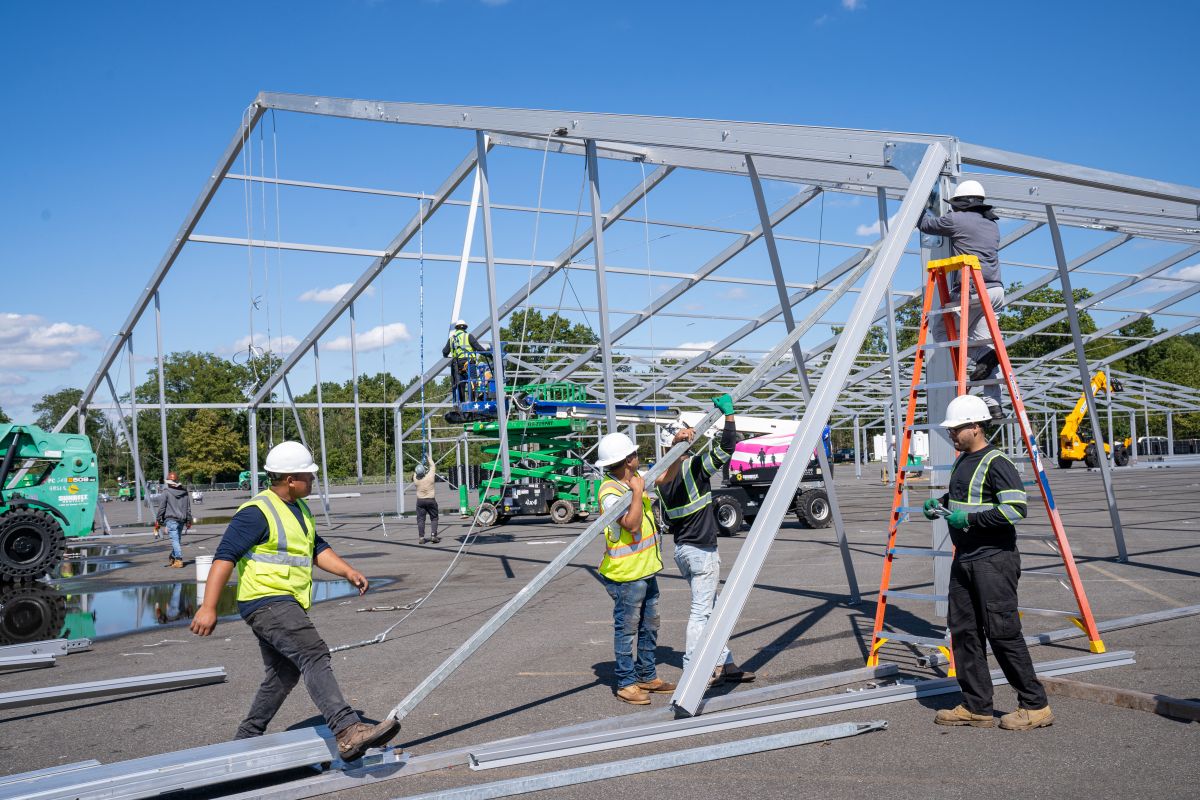As much as the Big Apple pretends to welcome the thousands of asylum seekers from Florida and Texas with open arms, the mayor’s office cannot cope with this humanitarian crisis.
And in this drama includes almost five thousand children, who without their asking, are involved in a wave of migration of people seeking a new life here in the United States.
Such is the situation that we remember how, until 1954 more than 12 million European immigrants arrived in Ellis Island, in the Port of New York, in front of the Statue of Liberty, with arguments similar to those of today’s Hispanics: they seek freedom and economic opportunities.
In this modern age history seems to repeat itself with families that will be located in two huge tents in Orchard Beach, The Bronx, as a new Ellis Island, which, although far from Lady Liberty, will be their temporary home while a judge decides on his asylum.
Those tents have already generated criticism. Although it is the solution that Mayor Eric Adams says he is developing to help these new New Yorkers, social organizations assure that they will lack privacy, that it is a flood zone and that they will be isolated due to lack of transportation, in addition to the fact that the cold is coming winter, among other arguments.
If we look at the glass half full, despite everything, these newcomers were lucky because in the waters of the Rio Grande or the desert they have recovered some 750 bodies of the deceased searching for the American dream.
Although the Europeans of the last century arrived with their documents in search of the support of their families or friends, now this process for Latinos could take years pressing social services; because they require education, food, guides to survive and learn the language or culture and, above all, they need legal assistance to start over.
There, the Commissioner of Immigration Affairs, Manuel Castro, faces the challenge of his life and to carry out his task, there is already a legal advice contract for 5 million dollars for the fiscal years 2023 and 2024.
The serious thing is that, although it is true that many of these Hispanics escaped the violence and fear for their lives, it is possible that some of them will be returned to their countries , because they flee is from economic insecurity and political turmoil or corruption and that argument will not be valid.
So the question remains: what will happen if the court does not accept the arguments after they have come this far? And that will be a new debate.
Sofía Villa is the author and writes this column in her personal capacity. Her opinions do not represent Televisa-Univision Inc. where she works as Writer / Producer.
